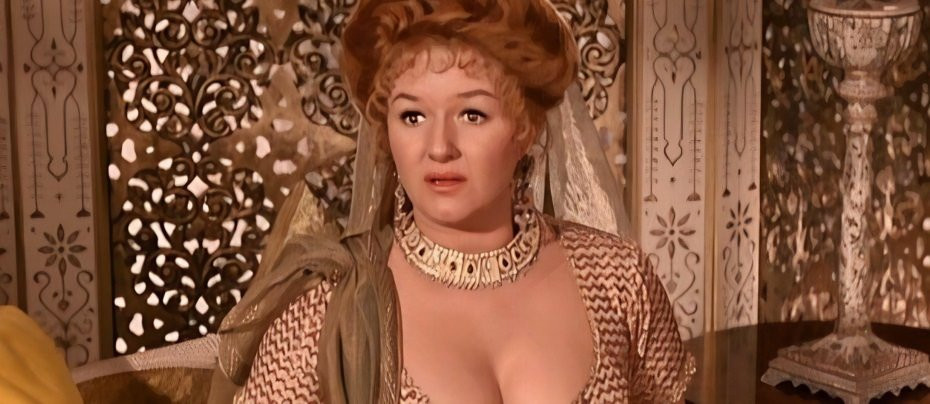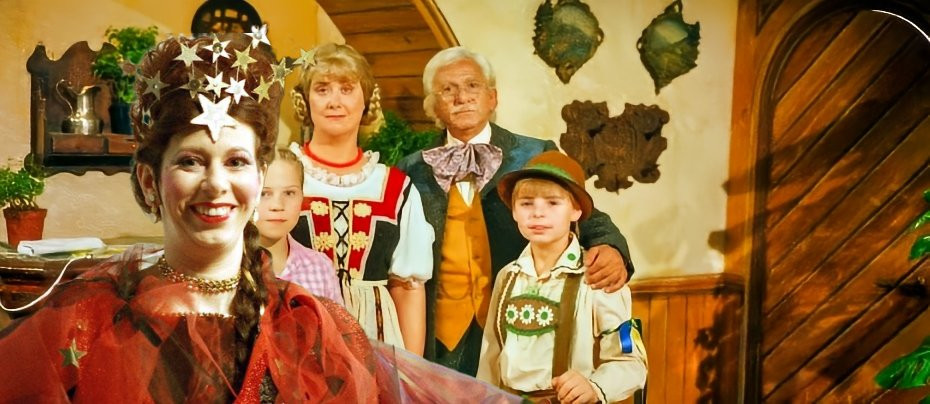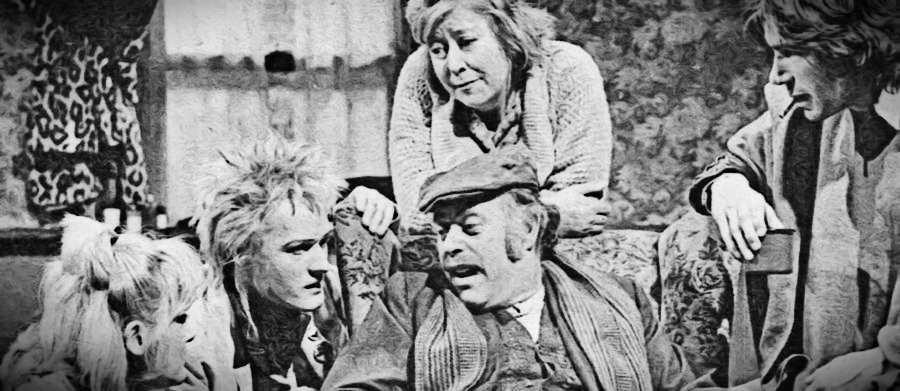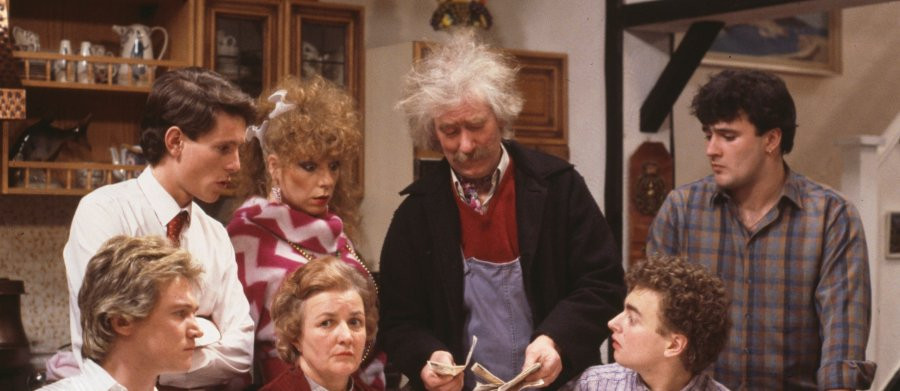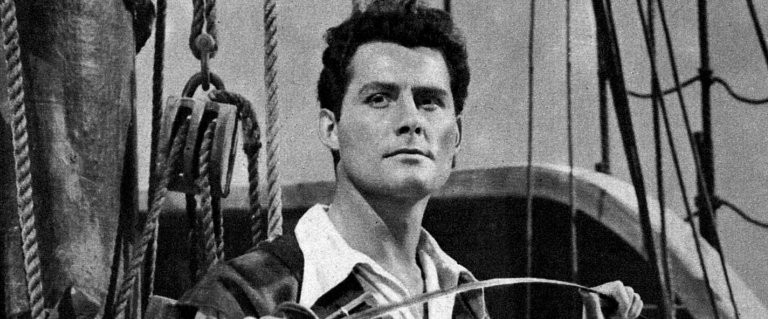
Ladykillers
1980 - United KingdomLadykillers is a series of seven hour-long plays produced by Granada television based on real-life murder trials where the accused was female - proving that when it comes to foul play the gentler sex can be just as deadly as the male.
Each play is introduced by Robert Morley who informs us that details of the trial have been condensed but scenes outside the courtroom are a mixture of fact and conjecture. The seven cases throughout history became famous and each of the accused faced the gallows if found guilty. The first trial (Murder at the Savoy Hotel) is that of Marie Marguerite Fahmy, a 32-year old Parisian beauty who is being tried for the murder of her playboy husband, Prince Ali Kamel Fahmy Bey, a wealthy Egyptian who was shot dead in a luxury suite at London’s Savoy Hotel on July 10, 1923. Mme. Fahmy doesn’t deny pulling the trigger that fired the fatal shot, but argues that her husband had continually been abusive and had even threatened to kill her earlier that fateful evening. The trial of the glamorous heiress aroused great public interest, especially revelations of the couple’s intimate relationship, told in court by Prince Fahmy’s secretary. The accused was defended by two giants of the English Bar, Sir Edward Marshall Hall and Sir Henry Curtis-Bennett. Marie is played by Barbara Kellerman.
The second trial (entitled: Not for the Nervous) is that of Kate Webster, played by Elaine Paige. On March 5, 1879, a man was walking along the edge of the River Thames at Hammersmith in London when he noticed human remains brought up by the tide. Police connected this discovery with the disappearance of a woman called Mrs. Thomas who lived alone in a cottage in Richmond, a few miles upstream. Some days later a woman, giving her name Mrs. Thomas, was found selling clothing belonging to the missing woman as well as effects from the house. She was proved to be Kate Webster, alias Catherine Lawler, born in Ireland, twice married and recently in the employment of Mrs. Thomas. The head of Mrs. Thomas was never found but popular folklore suggested that Webster carried it around in a black bag and the dripping she sold to a local pub was of human origin. Probably untrue but very gruesome!
The third trial (Lucky, Lucky Thirteen) would have been fresh in many peoples memory in 1980 as it was the case of the last woman in England to by hanged: Ruth Ellis. Georgina Hale plays the 28-year old nightclub manager, a former factory worker and waitress. In 1944 she gave birth to a child fathered by a French Canadian serviceman, and in 1950 she married George Ellis, a dentist. The marriage didn’t last and the couple parted. Alone again she began working as a call girl and club manager and met David Blakely, a 24-year old racing driver. She soon fell for his charm and his glamorous occupation and found herself pregnant once again. But in 1953 she had an abortion. Blakely offered to marry her but she turned him down. In 1955 they moved in together but Ellis continued to see her other lovers. On April 10, 1955 Ellis waited for Blakely as he left a pub and emptied a Smith & Wesson into his body. At her trial, in June of that year, Ellis was asked what she intended when she fired the gun at him. She replied “I intended to kill him.”
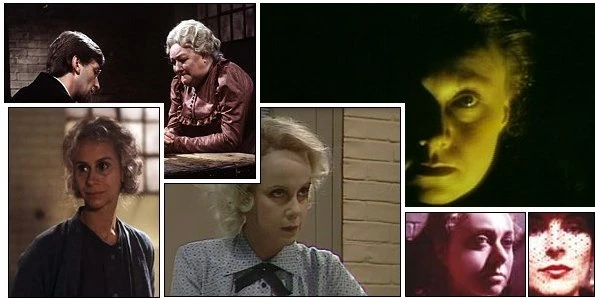
In the fourth trial (Killing Mice) the accused is Mary Pearcey, played by Joanna David. The grisly discovery of a woman’s body with an almost severed head in Hampstead, London, led to a police investigation which discovered a blood-stained pram nearby. The next day, October 25, 1890, the corpse of an 18-month baby was found on waste ground. A check of missing persons revealed that Mrs. Phoebe Hogg had taken her baby out the night before and not returned home. Although her husband seemed unconcerned his sister discussed her anxiety with a family friend; Mary Pearcey. The two women went to the mortuary to identify the body of Mrs. Hogg. Pearcey became hysterical and her behaviour brought her to the attention of the police. In their initial investigation the police discovered that the dead woman’s husband, Frank, had a key to Mary Pearcey’s house. A search of her kitchen revealed bloodstains and other signs of violence. She was tried at the Old Bailey in December 1890.
Episode 5 is called Don’t Let Them Kill Me on Wednesday. In a cottage in Coombe, Devon, lived Labourer Frederick Bryant, his wife Charlotte (played by Rita Tushingham), who was illiterate, their five children and a lodger, Leonard Parsons. In May 1935, Mr. Bryant was taken seriously ill. A doctor diagnosed gastro-enteritis and within a few days Fred returned to work. However, a few months later he was taken ill again with stomach pains. Again he recovered. But in December he died. Doctors found four grains of arsenic in his body. Charlotte was arrested and charged with murder. At the trial, neither Charlotte nor her lover, Leonard Parsons, appeared to be able to understand what was going on. This episode is written by Jeremy Sandford and also stars George Baker as Sir Terence O’Connor, QC.
Miss Madeline Smith (the title of this sixth episode) was the eldest daughter of James Smith, an architect and a pillar of Glasgow society in the 1850s. Madeline (played by Elizabeth Richardson) was described as a young, elegant 21-year old. In the spring of 1855 Madeline began an affair with 34-year old Peirre Emile L’Angelier, a clerk form Jersey. They exchanged passionate letters but on discovering the relationship her father forbade the affair and introduced Madeline to a new suitor. L’Angelier threatened to send the love letters to Madeline’s father. In March 1857 he was found dead in his lodgings. The autopsy revealed arsenic poisoning. Madeline Smith was tried at Edinburgh in June, 1857.
In March 1895, a bargeman fished a child’s corpse out of the River Thames. It had tape round its neck and was wrapped in a parcel bearing a Reading address. By the end of the following month the body of seven children had been found. All had been strangled. Suspicion fell upon a respectable 57-year old woman, Amelia Dyer. An ex-member of the Salvation Army, she had been fostering children for 15 years. It took two years to bring Dyer to trial. When she took to the dock her defence put forward a plea of insanity. This disturbing episode, which features a rare ‘straight’ performance by one of Britain’s top comedy character actors, Joan Sims as Amelia Dyer, is called Suffer Little Children.
This was not the first time women had appeared in the dock in a TV anthology series. In 1970 Saturday Night Theatre had produced a series of six plays under the sub-title Wicked Women, about criminal females in Victorian times. A second series of Ladykillers appeared the following year, but with a subtle change of title to Lady Killers, the dock was opened to male killers of women to also be put on trial.
Seen this show? How do you rate it?
Seen this show? How do you rate it?
Published on December 29th, 2018. Review: 2012 based on original TV Times article from July 1980.



